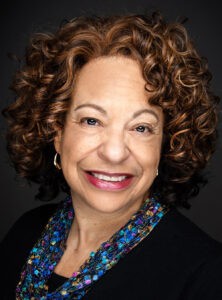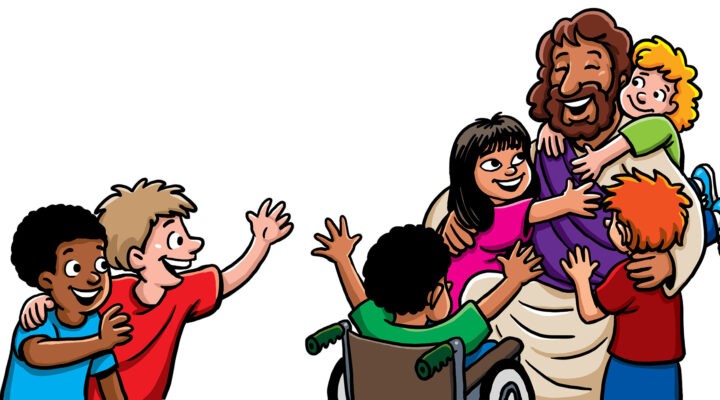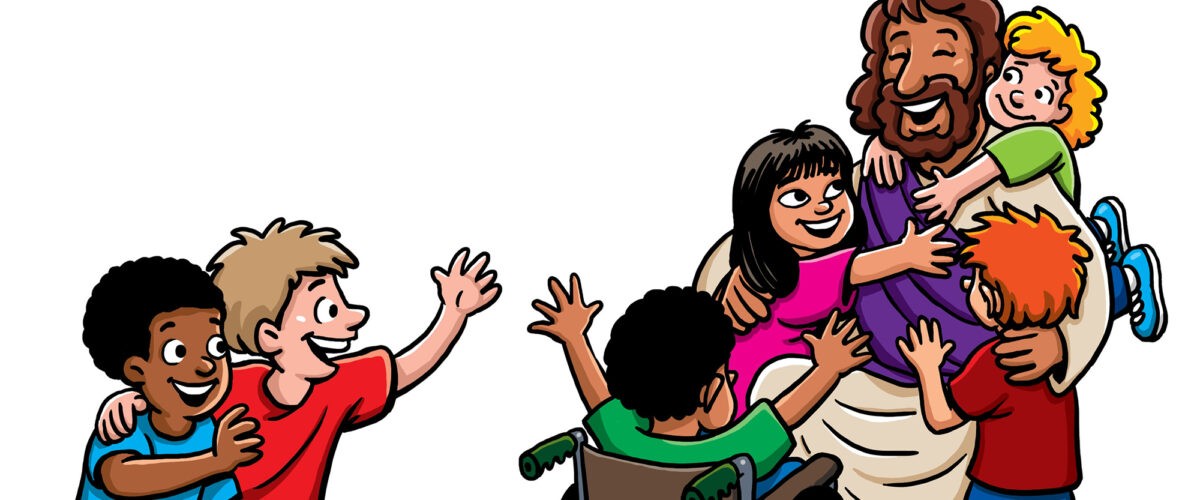When I was child, I loved Sunday school. I loved hearing about Jesus and how Jesus loved everybody and talked to everybody and healed so many people. Had Jesus not been the Son of God, I probably would have said, when adults asked, as they always did, what I wanted to be when I grew up, “I want to be Jesus.”
What I would have meant was, “I want to be like Jesus.” I thought it was remarkable that Jesus cared for people nobody else cared for, and, being a Black child in a white world, I was slowly learning what it was like to be despised, disrespected and shunned because of who you are.
Even as a child, that surprised me, because so many of the white kids I knew went to Sunday school, too. And while some of them were nice, others were just mean. One of my “friends” told me on a summer day when we were both playing on the monkey bars that her mother had told her she couldn’t play with me anymore because I was Black.
“You’re Black,” she said. “Plain, old, ugly Black.”
“You’re Black,” she said. “Plain, old, ugly Black.”
I wrote a children’s book about that experience, and for sure I, as have all Black people, have had my share of race-based experiences. But I confess I am confused as to why this is the case, seeing as how there was but one Jesus and there is but one Bible that contains the teachings of Jesus.
That feeling of confusion arose in me again when the people who were storming the Capitol building on Jan. 6, 2021, stopped to pray. They called on the name of Jesus.
What Jesus was that?
It was a Jesus with whom I have become familiar, because of all the racism in this country, but it wasn’t my Sunday school Jesus. This Jesus was the same one who was OK with people burning crosses in the name of white supremacy, the same Jesus who seemed not to care that really religious people saw nothing wrong with praying and fasting before going out to lynch a Black person. This Jesus was one who did not care about social justice; indeed, if the Pastor John MacArthur is to be believed, “social justice is nowhere included in the Bible.”
While the Jesus of my Sunday school lessons clearly had Jesus tending to “the least of these,” including those who had been marginalized by society, the Jesus of MacArthur and many who call themselves followers of the Christ stands for no such thing. MacArthur suggested that the marginalized have made themselves victims; in the victim group he includes women, the poor, ethnic groups and the sexually deviant. But in my Sunday school lessons, Jesus attended precisely to those whom MacArthur has labeled victims.
“In my Sunday school lessons, Jesus attended precisely to those whom MacArthur has labeled victims.”
According to MacArthur, the gospel is the stumbling block of victims because, he said, “victims hate the gospel.” And, he said in the sermon cited above, “If you acknowledge that something bad has happened in history, you’ve indicted God.”
I keep thinking that white people are from Venus and Black people are from Mars, that there is no way there ever will be a spiritually safe intersection between those whose Sunday school lessons were apparently radically different from mine, and people like me. What did Jesus do, what did Jesus stand for, if it wasn’t for fairness and equity and dignity of all people?
We are in the season of Lent, where we are supposed to be working on repentance — moving closer to God — but there is a problem. It seems white and Black people are moving toward — if they are doing that at all — two different Gods.
And if that is the case, I shudder to think about what’s ahead for all of us.
What all the political and spiritual chaos has cemented in me is my resolve to remain a Sunday school kind of girl, but I also now realize that all Sunday school lessons are not the same.
That is disturbing, as we confess that there is one Lord one faith, one baptism.
Apparently, not so much.

Susan Smith
Susan K. Smith is an ordained minister, activist and author. A graduate of Yale Divinity School, she is the director of clergy resource development for the Samuel DeWitt Proctor Conference. Her latest book is With Liberty and Justice for Some: The Bible, the Constitution, and Racism in America.
Related articles:
America is addicted to white supremacy | Opinion by Susan K. Smith
Nice white women participate in white supremacy too | Opinion by Laura Ellis
You cannot follow Jesus and endorse racism. Period. | Opinion by Mark Wingfield
The white evangelical war on truth | Analysis by Joel Bowman Sr.
What the Critical Race Theory debate has to do with Professor Harold Hill | Opinion by Mark Wingfield
‘Critical Race Theory is the kryptonite of white evangelicals,’ professor declares


